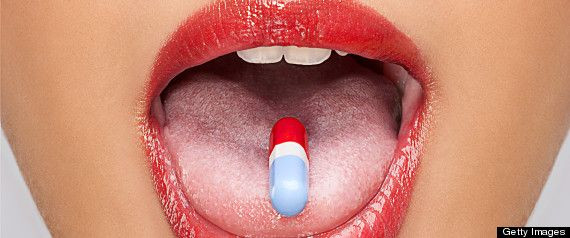Lybrido: Will the New "Female Viagra" Provide the "Cure For Extramarital Desire"?

Lybrido, the world's first female arousal drug, could be on markets as soon as 2016, according to a recent New York Times Magazine cover story by Daniel Bergner.
The developers of the drug expect that the FDA will soon approve a larger set of trials.
Although the drug has commonly been referred to as the "female Viagra," according to Berger this is a misconception.
Whereas for men, Viagra effects the mechanics of erectile function by changing blood flow rates to the penis, Lybrido would have additional effects on a woman's mind.
"A female-desire drug would be something else," he writes. "It would reach into the psyche."
Such a drug would increase levels of dopamine, which can contribute to impulsiveness and lust, and reduce levels of serotonin, which can contribute to calmness and inhibition.
Sexual dysfunction in men is much more easily cured, Bergner writes.
If you "give a man an erection [...] his sensitized nerves and enhanced feelings of power are going to feed his drive."
Whereas with a woman, increasing blood flow to the vagina is only part of the equation.
The new drug has inspired considerable discussion and will no doubt continue to provoke debate as the trials get underway and, especially, if the drug is approved for U.S. markets.
Kat Stoeffel at New York Magazine writes that Lybrido raises questions about the state of monogamy in a way that Viagra simply does not.
Drug trials have not involved women who are not in long-term relationships, Stoeffel points out.
Results from studies involving single women would have to be thrown out, Bergner writes, because "with or without chemical aids, new lovers bring surges of lust."
Bergner provides evidence that the lack of female desire, which Lybrido purports to cure, may be caused by monogamy itself.
One study that surveyed German couples in long-term relationships found that levels of lust dropped precipitously for women over long periods of time, whereas for men it tapered off more gradually. For women who lived with their long-term partners, lust levels also tended to drop off faster than for those who did not live with their partners.
"The impact of relationship duration is something that comes up constantly," Lori Brotto, a psychologist at the University of British Columbia who works with patients with clinically low libidos, a.k.a. Hypoactive Sexual Desire Disorder, told the Times. "Sometimes I wonder whether it isn't so much about libido as it is about boredom."
It may strike one as oddly appropriate that the drug was created by a male scientist suffering heartbreak after the termination of a long-term relationship.
"I was - flabbergasted. You can say that?" the Dutch scientist, Adriaan Tuiten, told Bergner. "I was shocked. I was suffering." Heartbreak led to his quest to understand female sexuality, and eventually it led to his career as a psychopharmacologist, Bergner writes. "I'm a little bit - not insane," Tuiten said. "But. There became a need for me to understand my personal life in this way."
But Tuiten's personal heartbreak pales in comparison to the-- perhaps hyperbolic-- worldwide devastation that some critics of the drug are predicting.
Researchers working on the drug recognize that if the female desire drug is too effective, the FDA might reject it out of concerns over "female excesses, crazed binges of infidelity, societal splintering," Bergner writes.
"You want your effects to be good but not too good," Andrew Goldstein, who is conducting the study in Washington, told Bergner. "There was a lot of discussion about it by the experts in the room. The need to show that you're not turning women into nymphomaniacs. There's a bias against-- a fear of creating the sexually aggressive woman."



























